Diversity Challenge - 19th September 2019
1 October 2019
Created by Luke Davis of the UCL London Centre for Nanotechnology, Diversity Challenge followed the format of the ever-popular ‘University Challenge’, but attempted to specifically showcase the scientific work of people who are under-represented in the scientific mainstream.
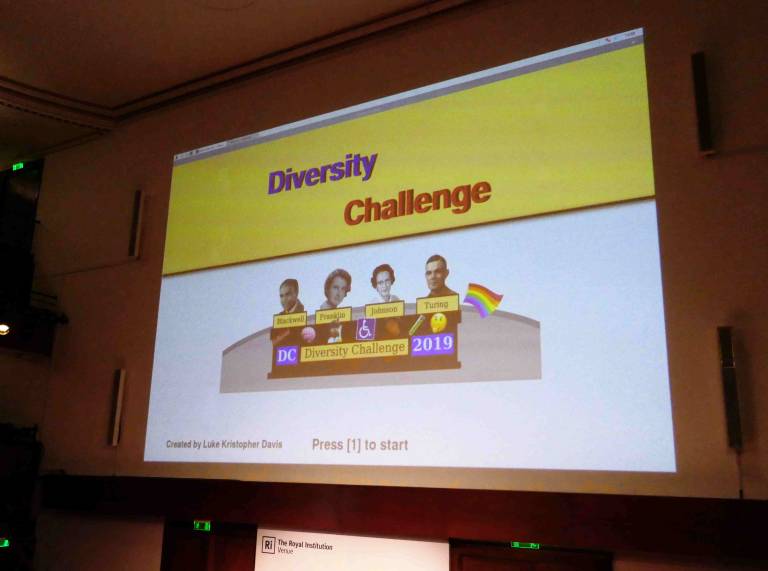
On Thursday 19th September, The Royal Institution paid host to the first ever ‘Diversity Challenge’. Created by Luke Davis of the UCL London Centre for Nanotechnology, alongside Dr Faith Uwadiae (Imperial) and Kayisha Payne (founder of BBSTEM and scientist at Astra Zenica) Diversity Challenge followed the format of the ever-popular ‘University Challenge’, but attempted to specifically showcase the scientific work of women, people of colour, people with disabilities the LGBTQ+ and neurodiverse communities, and others who are under-represented in the scientific mainstream.
The idea for the event came from Luke's introduction to EDI work:
“I am still new to the equality, diversity, and inclusion space and therefore still have lots to learn and experience. From what I can see already, the adoption of technology and coding can become a powerful way to facilitate and improve diversity and inclusion ideas and platforms. I believe that we should focus on equity, catering to the individual and their needs, rather than ‘equality’ which entails giving each individual the same resource irrespective of their differences. In order to achieve equity, diversity, and inclusion it is important to remember to have spaces and events that aim to invite and include everyone, since many initiatives focus on particular groups”.
Initial Speakers
The event began with a series of small talks from a range of individuals who are under-represented in this way. Firstly, 17-year-old Siena Castellon, founder of QL Mentoring and Neurodiversity Celebration Week, gave a profound talk on her experiences with autism, ADHD, dyslexia and dyspraxia, followed by Dr Charlie Wand discussing issues around LGBT+ inclusion. Madina Wane talked about issues around female equality – for example, the fact that car crash tests are carried out using male crash test dummies, leading to car safety measures which are not protective for women. Elli Harpum of UCL Physics – referred to by comedian Ed Gamble as ‘the Queen of Diabetes’ – discussed the assistance, and lack of, provided by various institutions for people with disabilities, while finally Abbie Bray, also of UCL Physics, discussed the experiences of a working class woman suffering from imposter syndrome.



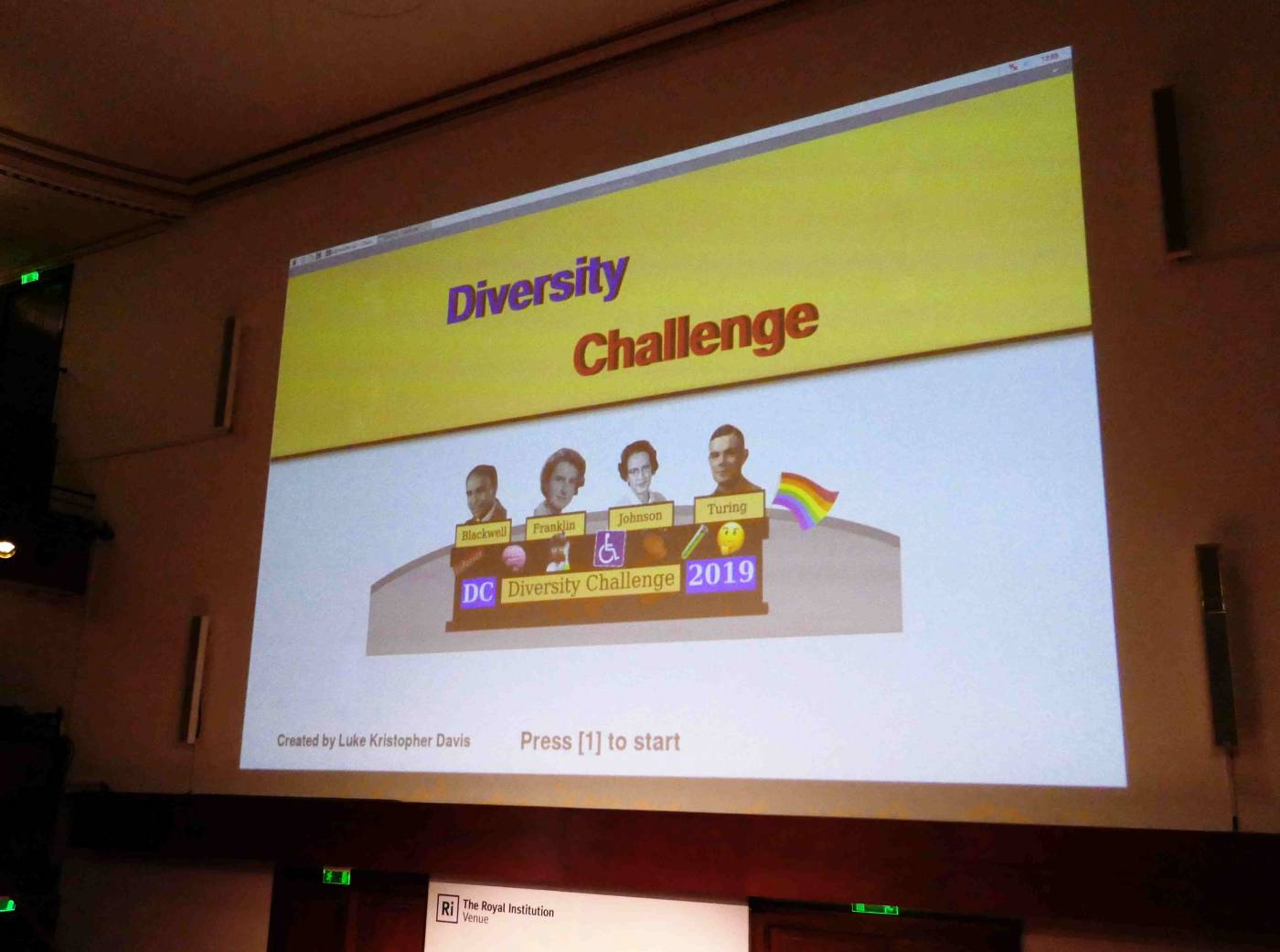







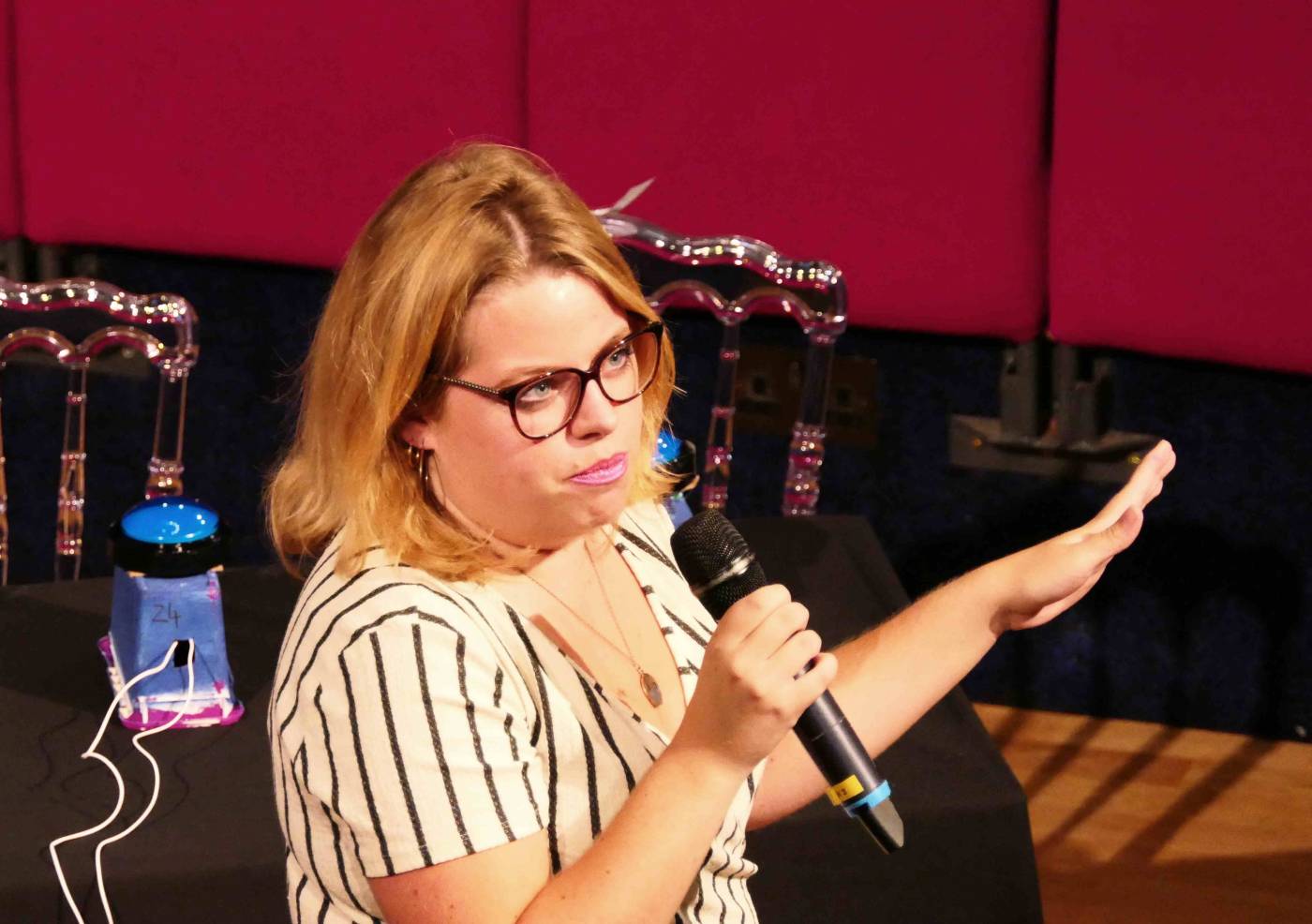






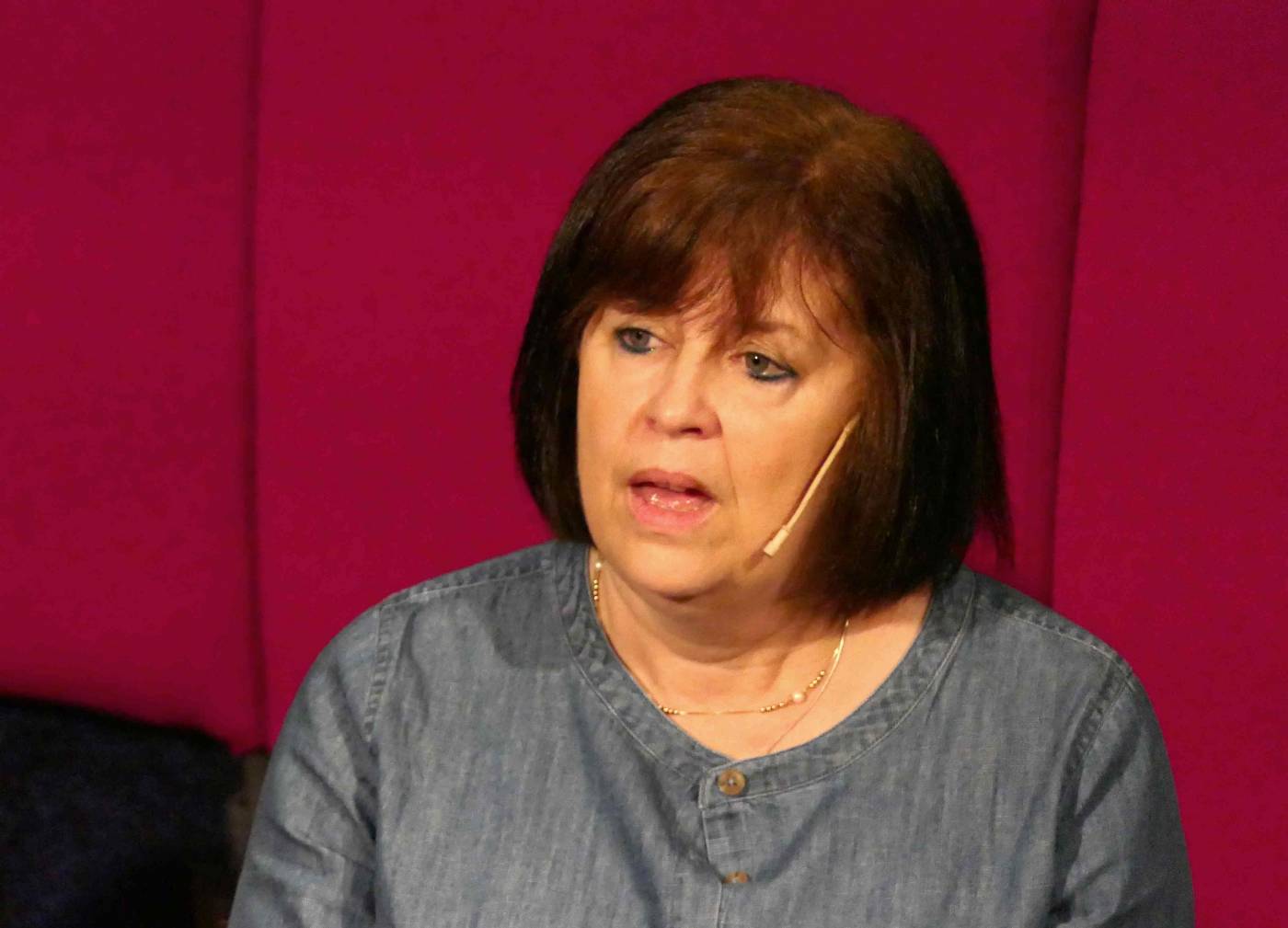

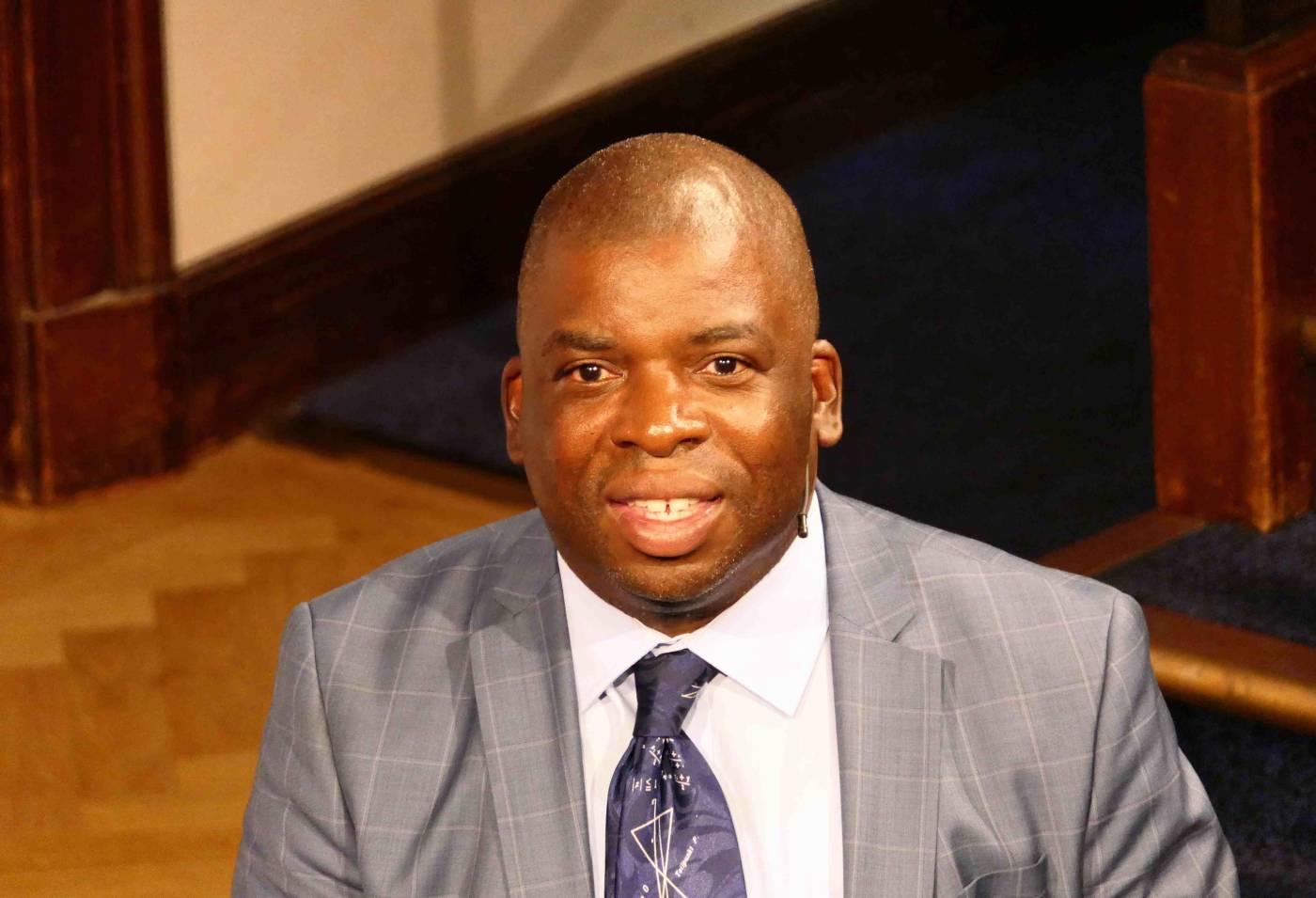
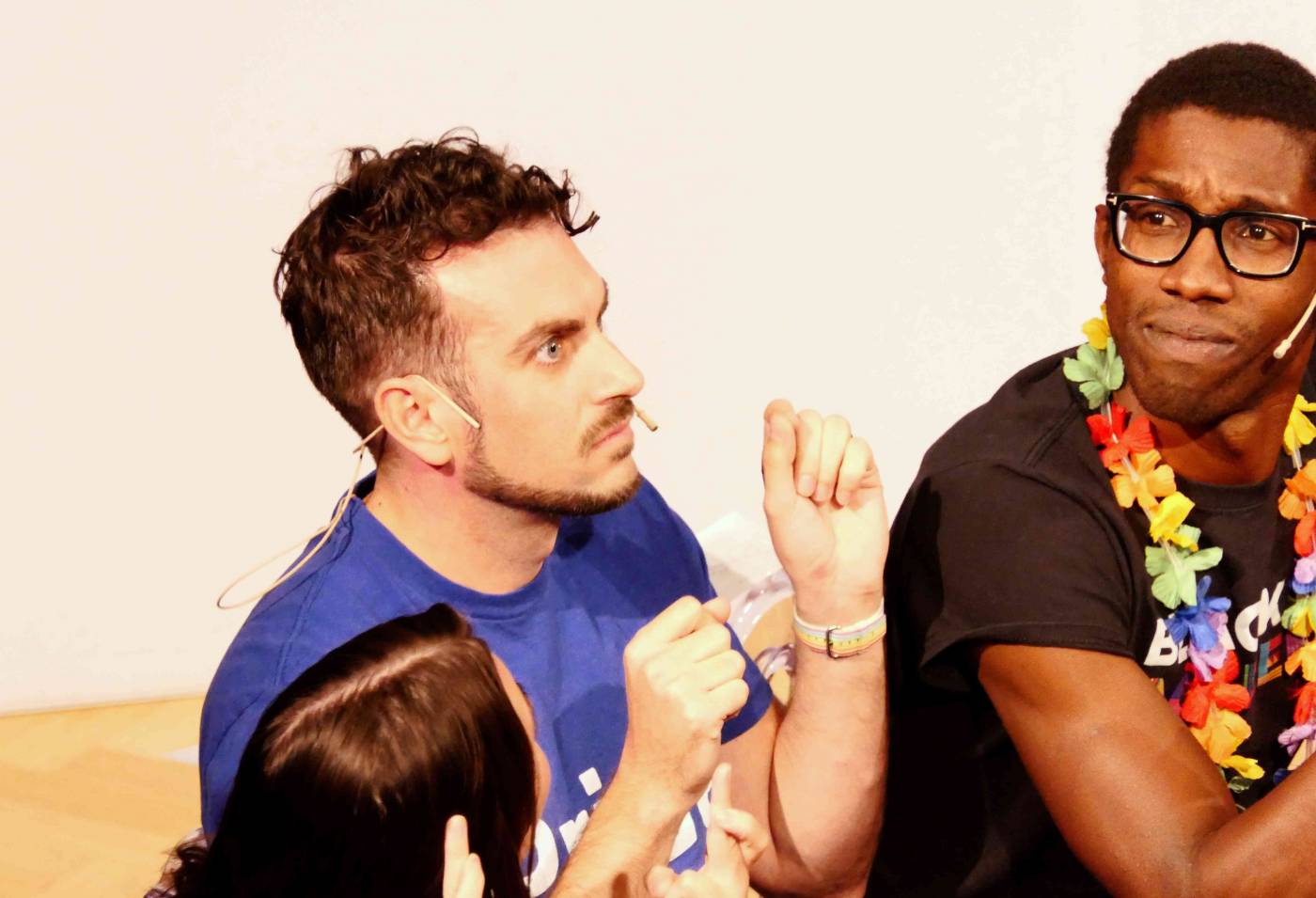





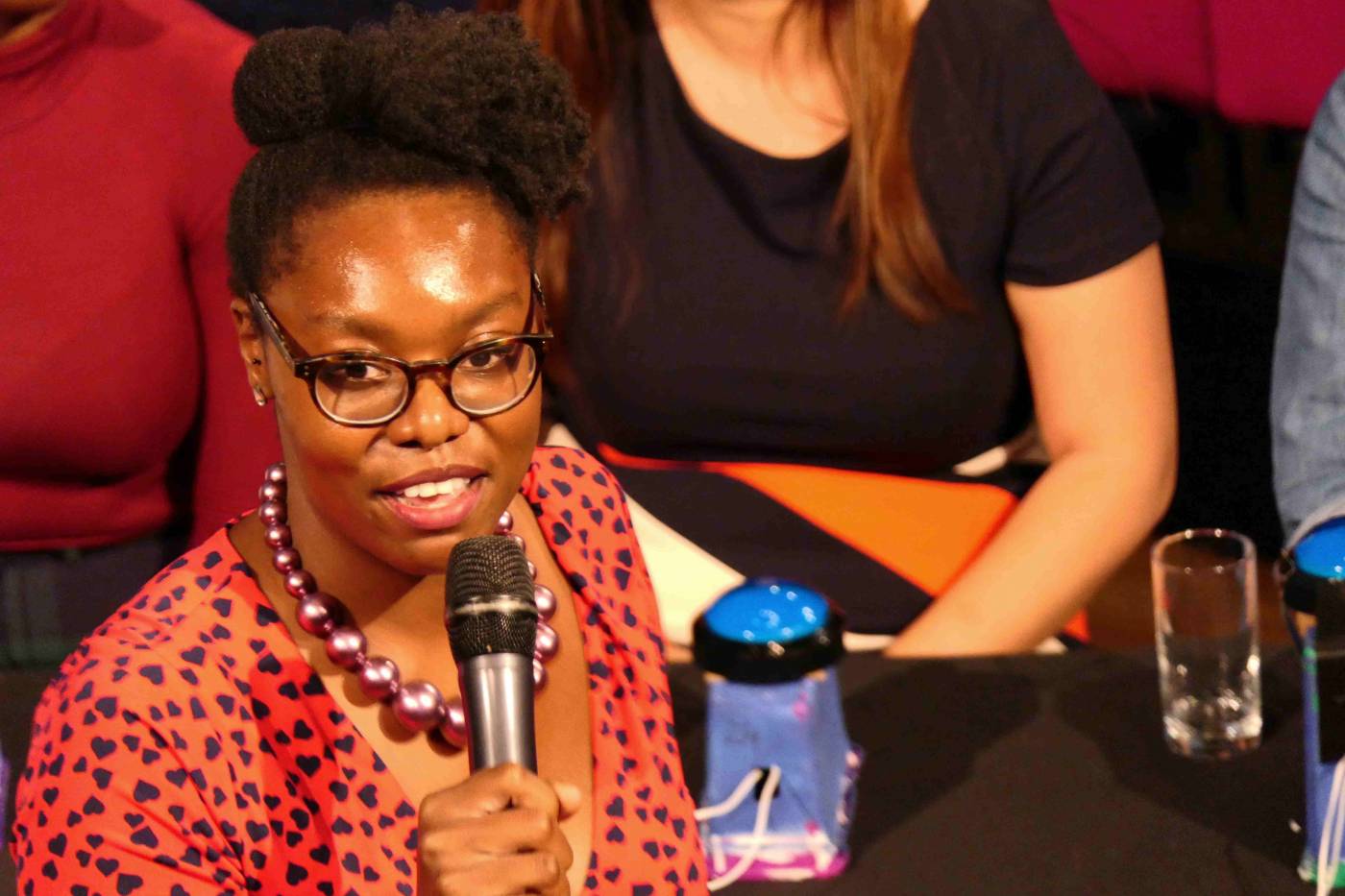
Following the introductory talks, the quiz itself began. Using an electronic buzzer and scoring system hand-crafted by Luke himself, the quiz followed the University Challenge format of a starting question for ten points, followed by three bonus questions of five points to the team which answered the starter correctly. The two teams were captained by Chris Jackson (Imperial) and Natalie Cheung (STEM Learning UK) – Team Jackson also included Lakechia Jeanne (Founder of Girls In Science), Dr. Alfredo Carpineti (Founder of Pride in STEM) and Dr. Jessica Boland (Manchester University), while Team Cheung featured Prof. Cathy Abbot (Edinburgh University), Dr. Nira Chamberlain (Institute of Mathematics and its Applications) and Dr. Esther Odekunle (GSK), with the quiz-hosting Paxman role taken by Dr Suze Kundu (Digital Science).
The Quiz
Following a tense beginning, several picture rounds, and several moments of audience interaction, Team Cheung took an initial lead. However, Jeam Jackson pulled back, leading up to a tie in the final moments. With Team Jackson answering the final starter by correctly recognising UCL alumna Maggie Aderin-Pocock, victory was assured. The event then finished off with a final summary from co-organiser Faith Uwadiae.
After the event, I asked Luke whether he felt it was successful. He replied:
“In terms of the event it was great to see the audience (200 tickets sold), speakers, and the quiz participants enjoy themselves and engage with the material. I could see the speakers really showing their personality and passion in their talks, which means we have done our job in creating a free and safe platform for them. When a particular question came up, I could hear the audience ‘thinking’ and conferring, which meant they were engaged. With regards to our audience, we reached out to a diverse crowd. As one of our aims is to showcase the wonderful role models in STEMM, we want to reach out to a young audience who are deciding on a particular career path. We were happy to find that our post-event survey revealed that 60.8% of our audience was under 30 (15.7% < 24 years old and 13.7% < 18 years old). The feedback we have received has been overwhelmingly positive.”
The event was not solely created by Luke - Dr. Faith Uwadiae made significant contributions to the making and fact checking of the questions and general organization of the event from the inception of the idea, and Kayisha Payne helped to fact check the questions and, from the beginning, advised on general organization and liaised with external participants - she also helped make some of the buttons. The current DC team also wished to thank everyone who helped get this project underway. Finally I asked Luke about plans for future Diversity Challenge events:
We are very happy with how the launch event went, and have received interest from STEMM institutions from around the UK. We would like to host Diversity Challenge events across the UK but you have to stay tuned to find out where we will be next. If any group/institution is interested please do contact us on Twitter @DiversityChall or email diversitychallenger@gmail.com.
All images - Malcolm Chalmers, MAPS Faculty
Links
- The Royal Institution
- London Centre for Nanotechnology
- Kayisha Payne - Twitter
- Diversity Challenge Twitter
- Siena Castellon - QL Mentoring
- Neurodiversity Celebration Week
- Dr Charlie Wand - Profile
- Madina Wane - Twitter
- Elli Harpum - Twitter
- Abbie Bray - Twitter
- Chris Jackson - Profile
- Lakechia Jeanne - Girls in Science
- Alfredo Carpineti - Twitter
- Jessica Boland - Twitter
- Prof. Cathy Abbot - Profile
- Dr Nira Chamberlain - website
- Dr Faith Uwadiae - Twitter
 Close
Close

